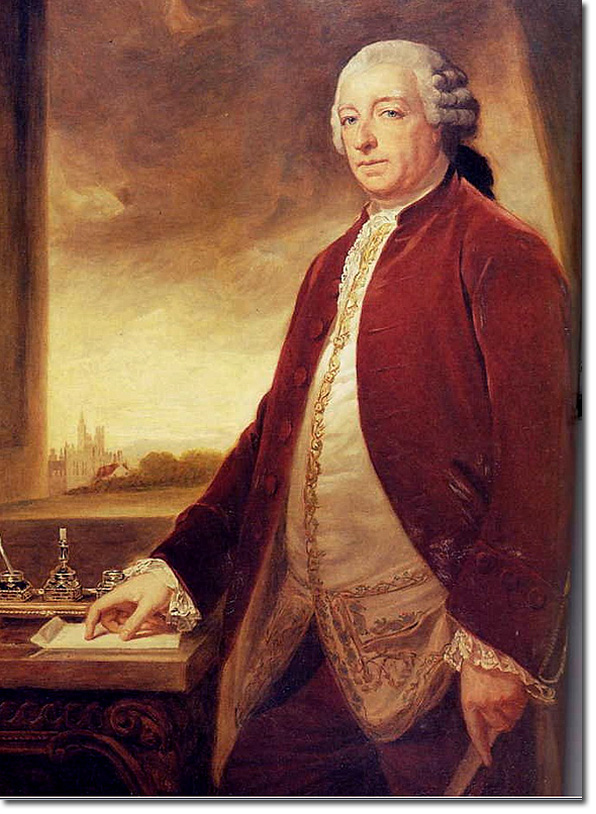|
|


|
|
The Hon George Sackville was born on 26 Jan 1716, known as Lord George Sackville from 1720 to 1770 and as Lord George Germain from 1770 to 1782. He was the third son of Lionel Sackville, 1st Duke of Dorset, and his wife Elizabeth, daughter of Lieutenant-General Walter Philip Colyear. George was educated at Westminster School in London and graduated from Trinity College in Dublin in 1737. He joined the army a few years later and had a progressive military career rising to the rank of Lieutenant General. He distinguished himself and was wounded at Fontenoy, but at the Battle of Minden in 1759 George repeatedly refused to order an attack at a crucial point in the battle due to his antagonism against the Marquess of Granby. The following year he was court marshalled, at his own insistence, and his army career terminated. Sackville refused to accept responsibility for refusing to obey orders. The court found him guilty, and imposed one of the strangest and strongest verdicts ever rendered against a general officer. The court's verdict not only upheld his discharge, but ruled that he was "...unfit to serve his Majesty in any military capacity whatsoever", then ordered that their verdict be read to and entered in the orderly book of every regiment in the Army. The king had his name struck from the Privy Council rolls.
1745 Wounded at Fontenoy In parallel with his army career George had been a Member of Parliament from 1742 (Dover, Hythe and East Grinstead) and so from 1760 onwards he started to pursue his political career more actively. In 1769, Lady Elizabeth Germain died without natural heirs, and left her estates to him. In addition to giving him a useful fortune this also gave him the opportunity to change his name and so from 1770 he was known as Lord George Germain. In 1775 George was appointed Secretary of State for the American Department replacing Lord Dartmouth in the post. At that time Lord North's cabinet had three Secretaries of State: Europe (the Northern Department), America, and the rest of the world (the Southern Department). Besides international relations, these Secretaries were responsible for a great deal of Colonial administration and for military operations within their areas. This made Germain the primary minister responsible for suppressing the rebellion that had broken out in 1775 in the American colony. The war in America did not progress well for the British and after the loss of Yorktown in 1781 the credibility of Lord North's government went into rapid decline. George resigned in early 1782 and the government fell shortly afterwards. George moved to the Lords becoming a Viscount. His political career never recovered and he died a few years later on 26 Aug 1785 at his home at Stoneland Lodge in Sussex. |
Armed Forces | Art and Culture | Articles | Biographies | Colonies | Discussion | Glossary | Home | Library | Links | Map Room | Sources and Media | Science and Technology | Search | Student Zone | Timelines | TV & Film | Wargames Library | Search | TV & Film | Wargames
